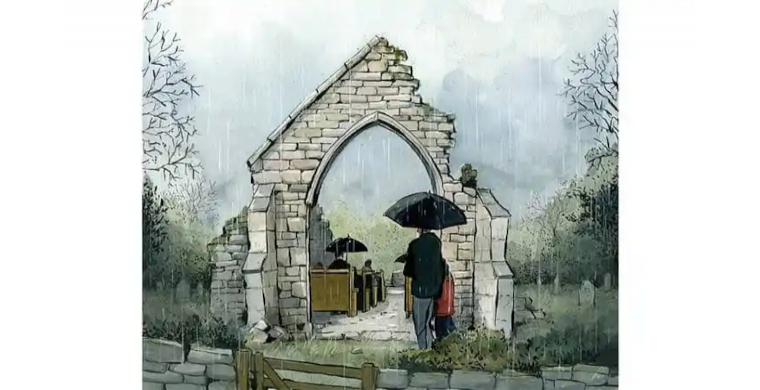What the Church of England should say to its conservative rebels
By Theo Hobson
https://www.spectator.co.uk/
13 August 2024
The evangelicals really are revolting. After a lot of talk of the need to break away from a tainted, liberal, heretical Church, something significant has happened. Last month, two of London's biggest conservative parishes -- All Souls Langham Place and St Helen's Bishopsgate -- held services 'commissioning' new leaders. It's an obvious repudiation of the Church's authority, and a step towards creating a new structure -- a 'de facto province', as one of the vicars involved put it. When this new structure is authorised, they will be officially ordained into it, he said.
This move doesn't quite break canon law, as long as these leaders don't preside at the eucharist. But in the most recent service, it was announced that these men (they are all men of course) will lead services at which bread is broken and the death of Jesus is remembered. Obviously this rejects the Anglican principle that only ordained clergy can preside at the Church's central ritual, which is the institution's very scaffolding.
When a group of Anglicans rejects the authority of the Church's leadership, we see that as a threat
How should the rest of the Church respond? The Bishop of London issued a dry statement: 'Incumbents have been reminded before and following these services of their responsibilities to ensure that the law of the Church of England as expressed in canon and liturgy is observed, and that all safeguarding requirements are fully met.' It's a sort of writ-rattling, a reminder that our lawyers are watching.
How should liberals respond? Should the conservatives be denounced for breaking with Anglican tradition? Yes, but this should done with care. For of course the liberals are also vulnerable to the charge that they are breaking with traditional doctrine. Most clergy would rather keep quiet, rather than risk alienating conservative parishioners.
But the average parish priest should speak about the issue, from the pulpit. One of London's leading liberal priests, Lucy Winkett, did so recently. 'We can't let this go unchallenged', she said of the breakaway movement. 'We must not allow this misinterpretation of scripture to stand, that will not let women lead, or...that condemns to isolation people who fall in love with someone of the same gender.' I think she did pretty well, but her situation is unusual, as her audience is full of liberal activists. What should the vicar of a more average congregation say?
It's a dilemma. He or she should resist the temptation to take a clear line on the issue of homosexuality, for many will be put off by anything that sounds like gay rights campaigning rhetoric. The average Anglican is agnostic on the issue.
But surely a parish priest should speak with conviction, rather than just echo the Church's official position. Its official position is semi-affirming of homosexuality. It has authorised blessings for same-sex partnerships, but holds back from affirming same-sex marriage. It is about to allow clergy to enter same-sex marriages, effectively ending the ban on sexually active gay clergy. But it insists that the doctrine of marriage is not changing. And it also insists that parishes are free to adhere to the traditional view of homosexuality -- they can't be forced to offer same-sex blessings.
I'd say something like this. The Church's teaching on homosexuality has been gradually changing in recent years -- it now feels that it should be affirmed within certain limits, and that a diversity of views should be allowed. In a sense, its official teaching on homosexuality is now agnosticism -- it isn't sure either way. Of course, this sounds muddled and cowardly, but maybe it is the brave and difficult option.
Some Anglicans find this impossible to accept, and go so far as to reject the authority of the Church's leadership. This is a serious matter. As Anglicans, we respect the authority of the archbishops and bishops. Without it, there would be no agreement as to who was a real priest, and what we do here would collapse. We need these structures, we see them as God's gift to us. So when a group of Anglicans rejects the authority of the Church's leadership, we see that as a threat to us. Their claim to be pure followers of the truth, rising above the difficulty of diversity, is an insult and an offence to us. So: if you feel certain that homosexuality is sinful and that the Church of England has become a false church for tolerating it, then this probably isn't the right place for you.
Theo Hobson is the author of seven books, including God Created Humanism: the Christian Basis of Secular Values














